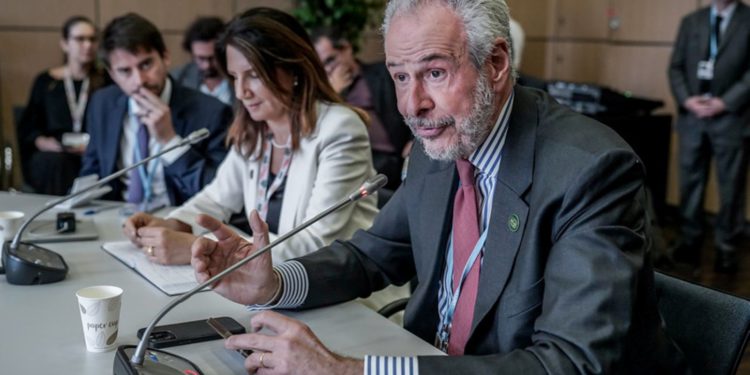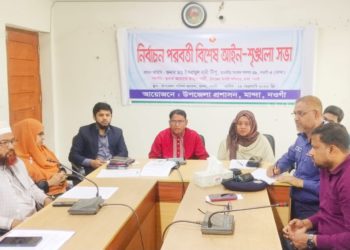The COP30 President Designate, André Corrêa do Lago, has launched an invitation to the peoples of the world to use Belém as a ritual of passage towards a more just and sustainable future. In his fifth letter to the international community, Corrêa do Lago emphasizes that people are not merely victims of climate change, but also leaders in the fight against its impacts.
“The incoming Presidency invites the international community to make of COP30 a ritual of passage to mark and soberly celebrate our transition towards a more promising and prosperous future”, says the COP30 Incoming President. “We can use COP30 to collectively process grief for a model of development that promised prosperity in the past but no longer carries hope to the future.”
Drawing inspiration from the United Nations’ core principles, the letter speaks directly to people, highlighting how their lived experiences, agency, culture, and leadership provide models for a more harmonious relationship with nature. COP30, he suggests, should mark a pivotal shift, recognizing those historically marginalized, displaced, or unheard as essential participants and rights-holders in the global response to climate change.
The Incoming Presidency will put people in the center of COP30 through tangible action and measurable positive impact across all four pillars of our climate conference, guided by our Global Mutirão Against Climate Change, launched by Corrêa do Lago in its first letter to the international community.
On the mobilization front, the Incoming Presidency has created a shared governance that has been pivotal in connecting COP30 to people’s realities with our Special Envoys, the Presidency Youth Climate Champion, and the Circle of Peoples. Within the negotiations, people are at the core of debates regarding issues such as the Global Goal on Adaptation, the GST Dialogue, and the Just Transition Work Programme. Other topics include the new Gender Action Plan, the Local Communities and Indigenous Peoples Platform, and loss and damage.
At the Leaders’ Summit, world leaders will be invited to engage in substantive debate, seeking concrete solutions that connect the climate regime to people’s everyday lives. Finally, each of the Action Agenda’s six axes provides a path for implementing with care, dignity, and leadership, aligning real-world needs with the implementation of the Paris Agreement’s Global Stocktake.
Corrêa do Lago argues that to strengthen multilateralism and accelerate the implementation of global commitments, people must be at the forefront of every nationally determined contribution (NDC), national adaptation plan (NAP), and biennial transparency report (BTR). They should also inform decisions related to climate finance, trade, and the transition to sustainable energy, among other crucial areas.
Climate action should be reclaimed as a human act, given our common responsibility in the fight against climate change, states Corrêa do Lago. Ultimately, the climate crisis is about giving urgency to people’s needs and hopes:
“Mitigation, adaptation, finance, technology, and capacity-building are first and foremost about addressing structural inequalities, ending hunger and combating poverty whilst promoting sustainable development, human rights, and equality, including on gender and race”, writes the COP30 President Designate. “It is time we remember that climate justice begins with people.”




















